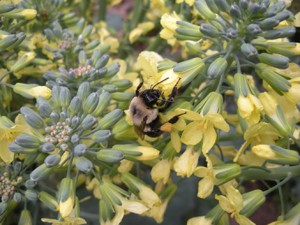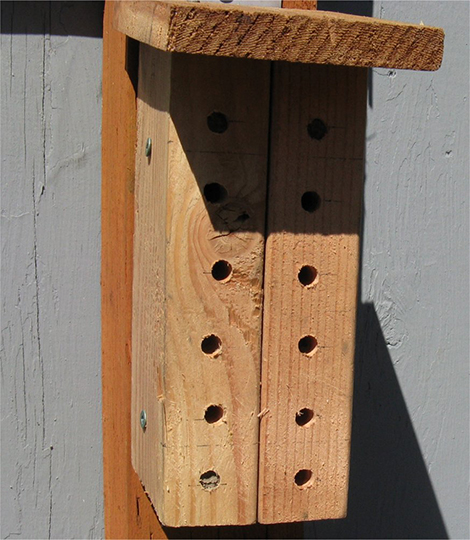
Consider the plight of the bee. Back in 1945 there were approximately 4.5 million hives of honey bees in the United States. By 2007 that number had dwindled to 2 million. More than one-third of the world’s crop production depends on bee pollination. At a time when growing populations require ever more food we are experiencing a decline in our most important pollinator. These little flower feeders get all the protein they need from pollen and all the carbohydrates they need from nectar. All they require are flowers. So what’s going wrong and why?
Seven years ago newspapers began reporting about colony collapse disorder (CDD), a mysterious condition evidenced by massive hive losses of up to 90 percent. Worker bees simply flew away and did not return. Keepers found empty boxes with no corpses to help solve the mystery. In her fascinating TED talk (watch it at TinyURL.com/Beacon-Bees), Marie Spivak, Professor of Entomology at the University of Minnesota, provides helpful insight into the problem. Threats to bees come from a variety of factors all of which are interrelated: diseases and parasites, pesticides, monoculture, flowerless landscapes, and dysfunctional food systems.
Prof. Spivak mentions two simple actions we can all take to help. First, plant bee-friendly flowers in our yards and promote efforts to turn roadsides into meadows. No yard? Try some potted plants by the door. Second, do not contaminate those flowers with pesticides. If you must use them, read the label and be aware of the active ingredients. Vegetable gardeners might consider rotating crops to provide flowering cover crops to feed the bees while enriching the soil. Butterflies will be just as grateful as the bees.
Keeping Bees in Andover
If you decide you are ready to keep honeybees you are in luck because Andover has lots of beekeepers with plenty of experience. Among them is master beekeeper Richard Brewster of Potter Place, who is generous with his time, expertise and advice. He can help you restore old hives, order bee packages and queens and show you how to protect the hives from bears. Peter Zak and Mary Lloyd-Evans in East Andover keep bees to pollinate their fruits and to harvest the honey. They welcome your visit to see their hives while shopping for apples, preserves, and honey.
Zac Lamas of Raccoon Hill is currently raising queen bees in attempt to improve the stock and, at the same time, reduce the number of varroa mites by breaking up their breeding cycle. You can purchase queens and nucleus colonies (nucs) from him in the spring. The Kearsage Beekeepers’ Association has several meetings each year, a regular publication, and a Web site with lots of helpful contacts, blogs, and information at KBAnh.wordpress.com.

Perhaps keeping a hive is too intimidating. In that case you may be interested in attracting mason bees, named for their habit of building nests with globs of mud. These solitary bees are gentle creatures and great pollinators; one mason bee does the same pollinating work at one hundred honeybees. Mason bees have no queen to protect, so they are not aggressive and they have no stingers. They do not live in honey-filled hives, so there’s no need to use electric fencing. Providing for and observing these bees is a fun family project. Nesting material can be drilled blocks or homemade paper tubes. Everything you need to know to attract and keep these bees can be found online; one helpful site is at TinyURL.com/Beacon-Mason-Bees.
Please remember to send your questions, photos, observations to me at AndoverNaturally@nullgmail.com.